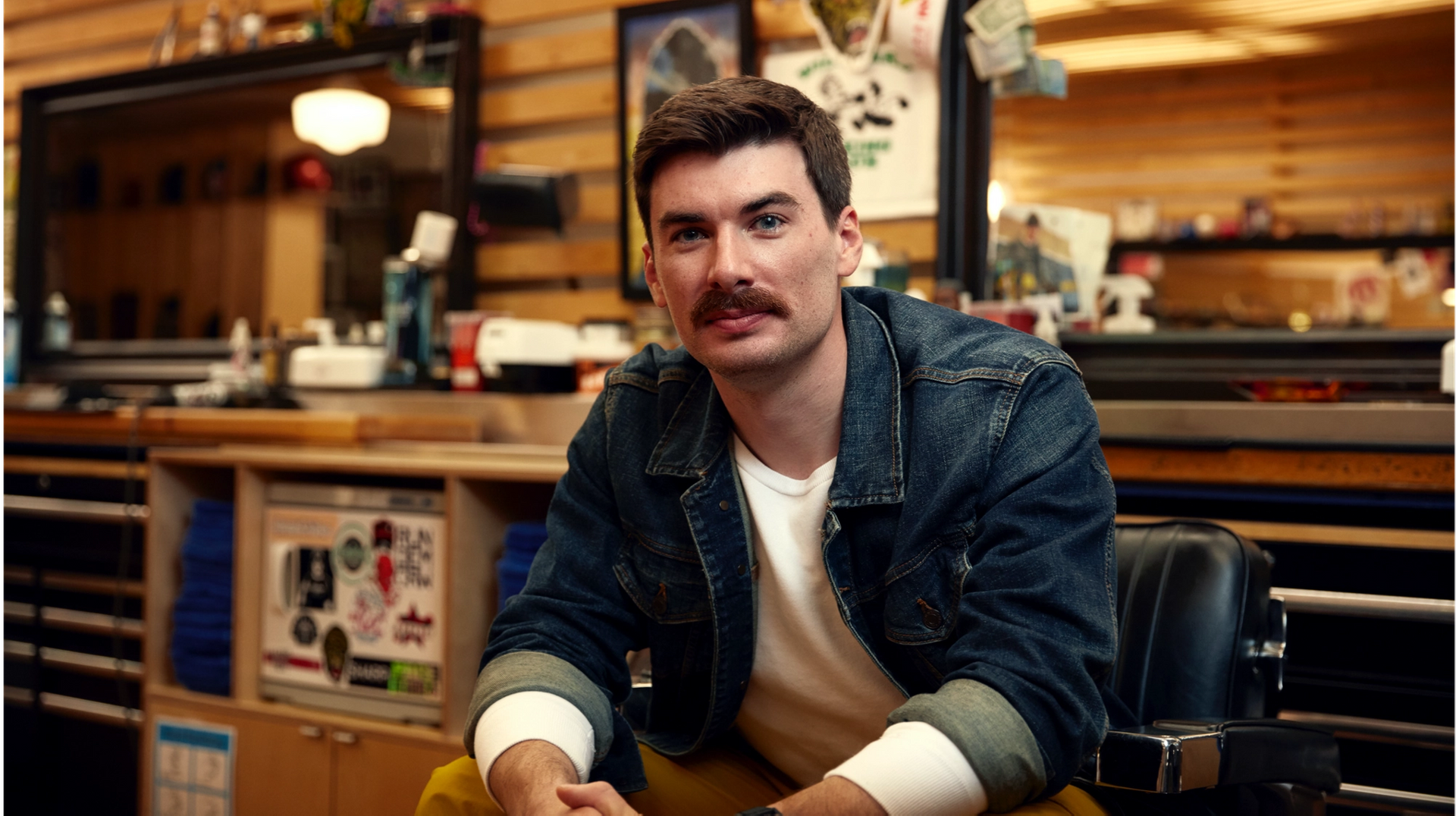



Mo Bro Tyler Cowan on mental health and masculinity
I’ve always been the kind of individual one might qualify as a dreamer—there are just so many things I still want to experience in this life. Which is why I never, ever, expected to find myself looking for a means to end it.
Movember has always been a cause near and dear to my heart—in fact, 2020 marks my 9th year as a participant, the initial impetus for my involvement having been my grandfather’s passing from prostate cancer. As my adult life progressed, this only compounded further as the disease became more and more prevalent in the lives of those closest to me. Even after Movember’s focus shifted to shine a greater light on mental health initiatives—which I thought was fantastic—the cornerstone of my personal fundraising efforts remained motivated by cancer research. Even though it had never been my personal diagnosis, it was the extent of my experience. Besides, as far as mental illness was concerned, I had always felt exempt—as if, in a society of struggling individuals, I’d somehow emerged unaffected; the shining exception to the rule. Of course, life has a funny way of catching up with us…
In the waning months of 2018, I found myself in a very deep state of depression for the first time in my life; the loss of control unfamiliar, and terrifying. I did everything in my power to cling to my personal perception of “normalcy”, however, after spending the better part of a year in denial about it, my world began to unravel around me. My relationship at the time fell apart. My connection to friends and family was adversely affected. In August of 2019, I suffered a mental breakdown and unexpectedly quit my C-level position at a start-up production company, forfeiting—what remains to this day—the best salary I’ve ever received... I didn’t blink once. I was falling apart at the seams, nearly unrecognizable to those closest to me; a shell of the vibrant individual I’d once known myself to be. It was a level of helplessness I’d never encountered in my life up until that point, and as I struggled to even get out of bed in the mornings, I found myself caring less and less about the outcome—my mental and emotional bandwidth had been tapped dry. It was at that point I began to seriously consider suicide as a way out. And when I finally realized what was happening, it horrified me.
There is an incredibly unfortunate stigma surrounding mental illness, and how people deal with it—especially when it comes to young men. Suicide was not a foreign concept to me, I’d just failed to comprehend how anything could be so perceivably bad for someone that it would merit taking their own life. I’d always thought, “there’s no way I would ever let that happen to me: I’m stronger than that.” But here I was… And therein lies the problem: mental illness does not discriminate. Yet societally—as men in particular—we’ve been conditioned to feel that an inability to take care of our own problems singlehandedly is a weakness; that not having all the answers makes us less than; that being vulnerable is unattractive; that asking for help is a threat to our masculinity, and is thus something to be ashamed of. And it is literally killing us.
Prior to things compounding as severely as they did, I just didn’t possess the emotional capacity required to defend how I was feeling to anyone—especially my friends and family. I was fearful of how my own concerns might be met or extinguished if they were openly voiced. I also didn’t want to believe that things had truly gotten as bad as they had, and raising them publicly felt like a confirmation: I didn’t want my circumstance to be real and, in my own mind, keeping silent kept it from materializing. What I failed to realize, however, was that this exercise in suppression had taken me to the brink of a catastrophic implosion... I think the reason I was finally able to come forward to my friends and family was because I was no longer effectively able to hide it—something that I'd done in the interest of self-preservation for so long. They started asking questions, and the truth just kind of bubbled up. And then, boom—it was all out on the table. Despite my initial fears, the conversations that followed gave me the courage I needed to seek out professional help. It got the ball rolling—and it ultimately saved my life.
This is no doubt something a lot of guys deal with—regardless of whether or not they’re able to admit it. Regardless of whether or not we look at our family and friends and think, “no, not them…. They wouldn’t.” I thought that way about myself, and here I sit. My journey over the past two years has really reframed how I think about depression, and though I’ve committed a great deal of energy to my own personal growth, I want to ensure that part of that healing is making the continued effort to break down the stigmas surrounding mental health in our community, and beyond. This year’s Mo is grown, as always, to create awareness and incite conversation—but also as a symbol of solidarity. Solidarity with the ones currently weathering the storm; for the ones standing strong as their loved ones go through it; and for the ones struggling to share what’s truly going on behind the curtain. To those individuals, I sincerely hope you can find the personal courage necessary to speak your truth without embarrassment or indignity. Let’s, as men, help flip the script and re-enforce—for individuals on both sides of the fence—that it’s okay to reach out; to ask for help; to be a shoulder for someone, even when you don’t have the answers; to create a safe space for the people we love. And not only is there no shame in it, but we need to encourage it—because it really can save lives. The fact that I’m here today is proof of that.
Here’s to the men of more words. Keep up the good work.
If you or someone you know is in crisis, or needs emotional support we urge you to head to movember.com/getsupport for crisis support options. To speak with someone immediately, contact your local 24-hour support service.